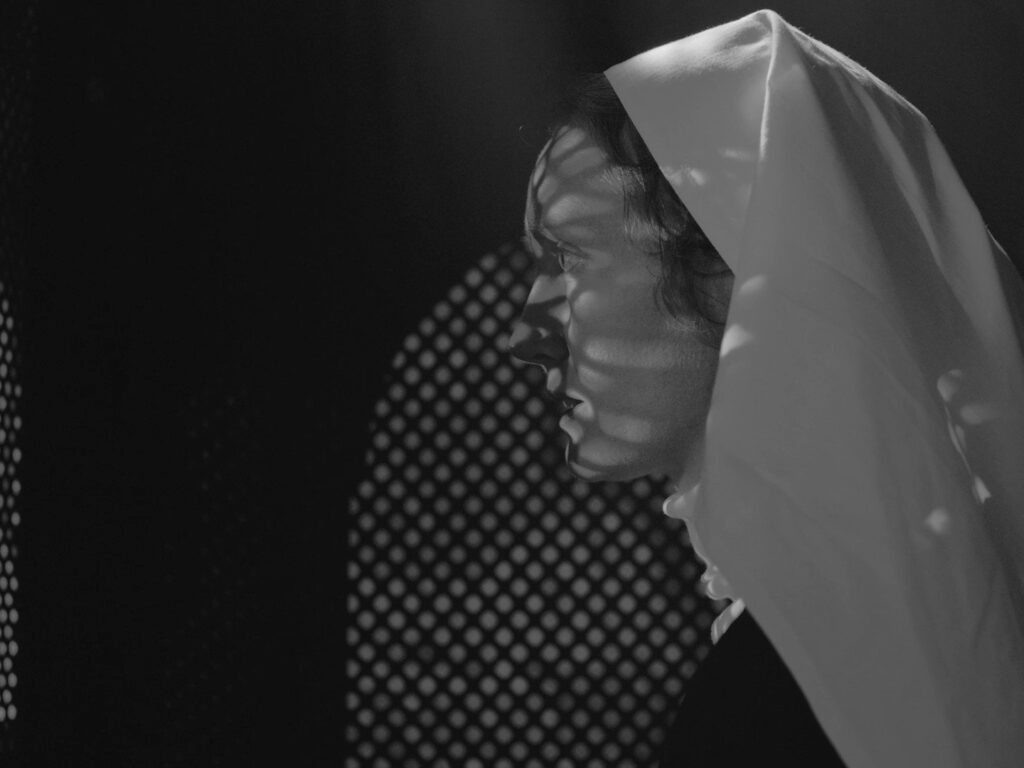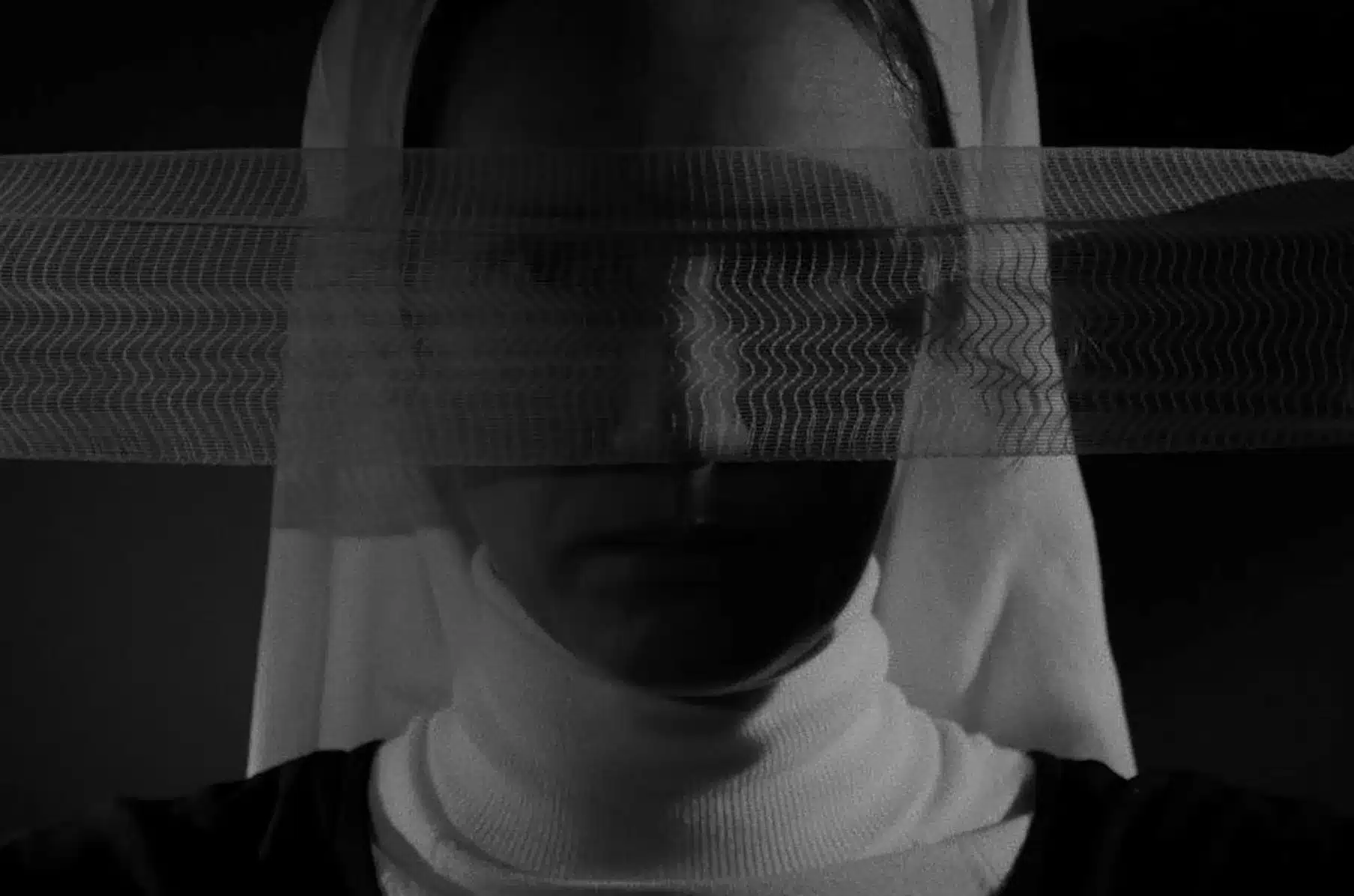
Part of the recently-reviewed ‘Sharp Shorts’ package, Itch (2021) plays with ideas around faith, mental illness and temptation, and seemed like a project we wanted to explore a little more. Having recently reviewed the title, we were fortunate to next get the opportunity to speak to the director of Itch, Susannah Farrugia, and we’re grateful to her for taking the time to answer a few questions on the film. Please remember: you can see the film for yourself right now by heading to the Arrow streaming service.
Without further ado, onto the questions:
Warped Perspective/Keri: My first question has to be – what drew you towards a convent for this story? Why a convent, why nuns?
Susannah Farrugia: I come from Malta, which is a very Roman Catholic country; that is condensed within churches and convents, so it is a subject matter I am very familiar with and have always wanted to explore in film, especially since some of my favourite films are The Sound of Music (1965) and Black Narcissus (1947). The main reason was based on practicality and budget – choose a location where it would narratively make sense for the characters never to leave – and a convent offers that. Together with this, I am inspired by nunsploitation, and wanted to invert the tropes through a feminine, queer lens.
WP: Tell us about the decision to present your film in black and white. Was this always your intention? Were you influenced by anything in particular in this respect?
SF: I always imagined the film in black-and-white, inspired by the monochromatic hues of a nun’s habit. I have my own reading that it parallels Sister Jude’s binary black-and-white thinking of good and evil, heaven and hell, purity and filth. I considered colour and tested the material in colour, yet it did not seem comparable to what it looked like, and more importantly felt like, in black-and-white. I would say another inspiration for my choice is body horror Tetsuo: The Iron Man (1989), which manages to heighten the horror by removing the colour of blood.
Another choice which interfolds with the colour is the film’s time. In some ways, I believe the film to take place inside a timeless era, where we are not exactly sure if what we are watching is in the 19th Century or modern-day, because all we know are the walls inside the convent where time moves extra slowly. Forever locked inside the life of a cloistered nun, time loses its meaning and the only way we can tell time is by how fast blood moves down her wrist.
WP: It is interesting that, in the film, Sister Jude is quite well aware of what is tormenting her: how important was that in creating her character, and her contested mindset?
SF: There is a helplessness one must surrender to when dealing with illness. Your body can externalise internal trauma and this is a theme I feel is very relevant to the film. She is aware of her desires, but her knowledge only adds to the torment. The cycle of suppression is substantiated with guilt and anger which moves the narrative, so the self-awareness is pivotal to her characterisation and the last frame of the film. The contested mindset is explored in the same vein as her black-and-white thinking.
WP: The film is more psychological than graphically violent, but still has a number of unpleasant sequences which border on body horror – did you debate about what you wanted to show and what you didn’t want to show in the film?
SF: I think the psychological narrative allows the violence to be tethered to reality, but not part of it. The unpleasantness and visceral nature of body horror never truly occurs but happens nonetheless in the dreamscape.
SF: Itch is your first short film and you both wrote and directed it: did you enjoy the experience, and is it your intent to go on and make more films? If so, do you have any plans?
I’m superstitious, so the less I say the better! However, I do plan on making more films and you can keep up to date with me across my several Instagram channels: @cinema.ink, @itch.film, @makeupincinema, @nunsinsinema, and @cakesincinema.
